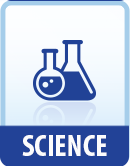|
This section contains 632 words (approx. 3 pages at 300 words per page) |

|
Escherichia coli is a bacterium, which inhabits the intestinal tract of humans and other warm-blooded mammals. It constitutes approximately 0.1% of the total bacteria in the adult intestinal tract. Its name comes from the name of the person, Escherich, who in 1885 first isolated and characterized the bacterium.
The bacterium, particularly one type called strain K-12, is one of the most widely studied organisms in modern research. Its biochemical behavior and structure are well known, having been studied for much of this century. This plethora of information has made E. coli indispensable as the bacterial model system for biochemical, behavioral and structural studies. E. coli is also the most encountered bacterium in clinical laboratories, being the primary cause of human urinary tract infections. Pathogenic (diseases causing) strains of E. coli are responsible for pneumonia, meningitis and traveler's diarrhea.
As part of the normal flora of the intestinal tract...
|
This section contains 632 words (approx. 3 pages at 300 words per page) |

|


